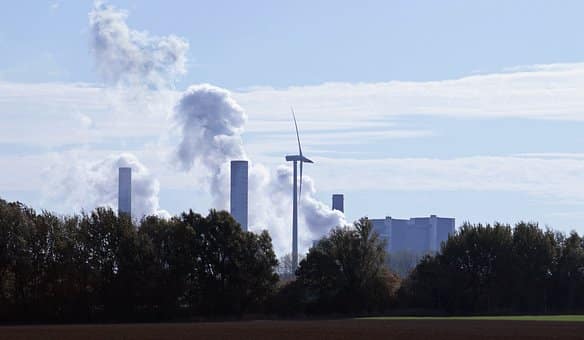Biden Administration Launches $2.1 Billion Program to Support Carbon Dioxide Transportation Infrastructure

The U.S. Energy Department has started receiving letters of interest for projects under a $2.1 billion program to finance the deployment of carbon dioxide transportation infrastructure projects. The program, titled “Carbon Dioxide Transportation Infrastructure Finance and Innovation,” or CIFIA, is funded by the 2021 Infrastructure Investment and Jobs Act. The initiative is expected to be a key driver in building common-carrier carbon dioxide transportation infrastructure with large capacity throughout the U.S. Key elements in the infrastructure program include pipelines, rail transport, ships, barges, ground shipping, as well as storage facilities.
The investment will facilitate the deployment of different carbon management technologies such as direct air capture, carbon capture from industry, carbon capture from power generation, carbon conversion, carbon dioxide transportation, and storage technologies. The initiatives will drive the country to solve climate change problems, help to achieve a carbon-free economy by 2050, and help with new job creation in the clean energy economy.
Through the deployment of carbon management technologies, the investment aims to create an organized carbon management ecosystem in the domestic market that transports carbon dioxide from point sources to conversion and storage facilities. There is a need for strong investments that aim to subdue risks related to the deployment of large common-carrier carbon dioxide transport infrastructure, which includes high capital expenditure, short-term demand, and uncertain utilization. To overcome these obstacles, there is a need for support from federal, state, and local administrations along with private investment, and the CIFIA program intends to address these issues.
Controlled together by the U.S. Energy Department’s Loan Programs Office and Office of Fossil Energy and Carbon Management, the source of funding for the CIFIA program would be from direct loans, loan guarantees, and grants that will support the commercial deployment of carbon management technologies.
The infrastructure law encourages investment in the U.S. infrastructure and competitiveness. The law supports the re-erection of the nation’s infrastructure which includes electric vehicle infrastructure, electric generation, grid reliability, clean energy transmission and deployment, energy efficiency, and access to clean water and cyber security, thus building a sustainable economy.
While letters of interest are being accepted, potential applicants are requested to consult the department prior to the submission.
EnerKnol Pulses like this one are powered by the EnerKnol Platform—the first comprehensive database for real-time energy policy tracking. Sign up for a free trial below for access to key regulatory data and deep industry insights across the energy spectrum.
ACCESS FREE TRIAL